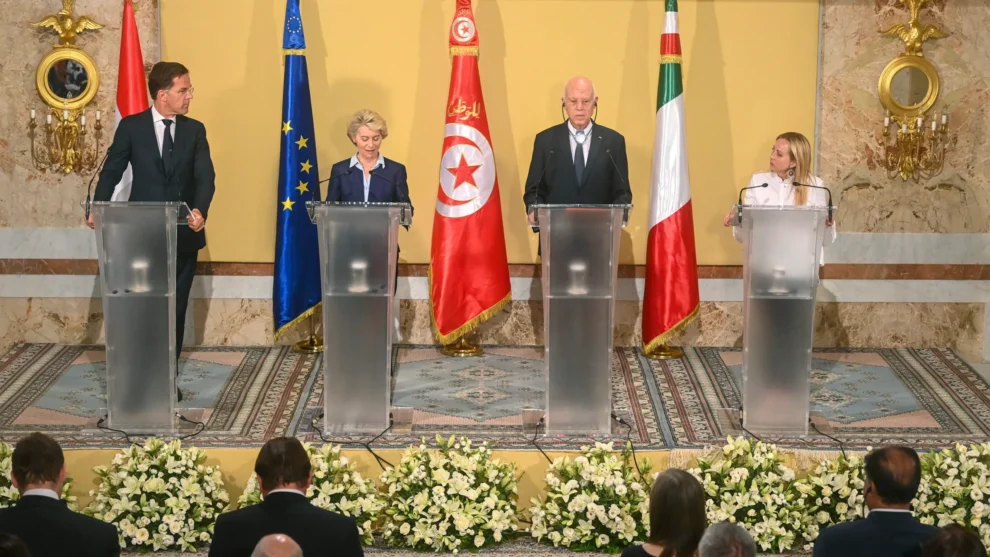The EU-Tunisia Memorandum of Understanding (MoU) is in its early stage of implementation, for instance, when it comes to the €105 million for migration announced in July 2023, a European Commission spokesperson told Euractiv. Of that sum, €53 million was contracted at the start of 2024, the spokesperson said.
According to the Commission, this money was not allocated directly to the Tunisian government but to different development partners, divided in the following way:
One €8 million contract signed with the UN agency for refugees (UNHCR) to “strengthen protection and access to basic services for refugees and asylum seekers in Tunisia”, the Commission spokesperson said, specifying that €3 million comes from a decision adopted in 2022.
A contract of €13 million was signed with the UN agency for migration, IOM, for voluntary return “from Tunisia to countries of origin and reintegration of Tunisian returnees”.
Another €17 million contract was signed with the French Interior Ministry’s operational arm Civipol and the German-based organisation Deutsche Gesellschaft für Internationale Zusammenarbeit (GIZ), which receives funds from the German Economy Ministry, UN agencies, and other governmental and private entities.
Under this contract, three new search and rescue vessels, equipment and training have been provided to Tunisian authorities in early 2024.
An €18 million contract was signed with the UN Office for Project Services (UNOPS) to support the Tunisian coast guard with one new search and rescue vessel and training, the Commission spokespersons said.
It is becoming hard to track all projects, development partners, and millions of euros that the EU is investing in North Africa (and not only there) in the field of migration.
There is even the risk of confusing new and old projects, approved years ago as part of the MoU.
On a general note, the EU has invested for years in these countries, usually through development partners – EU member states, private organisations, or UN agencies.
I reported on some of the recent projects the EU is implementing in the field of migration, focusing on the creation of a Maritime Rescue Coordination Centre in Tunisia and the declaration of the Search and Rescue zone.
From this point of view, the Memorandum has to be seen as a continuation of what the EU has been always doing with the North African country.
The very next question that comes to mind is: What is the impact of these policies in the country? What will be the effects? For that, we will have to wait and see.
Source: Euractiv





Add Comment